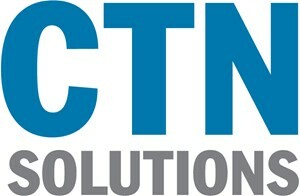Putting together your workforce is something that requires painstaking attention to detail. You found workers who are willing to work as hard as possible to further your organization’s goals. Yet, you have to remember that even the most perfect employees are still human, and that they can make mistakes and can put the organization’s data at risk. User error is a common problem, and it is one of the most important things to keep in mind while you set up your information systems.
Is your organization prepared to handle user error?
The problem in this case is that diligent staff–though they are simply trying to do their jobs better–could potentially put your organization’s data at risk specifically due to their enthusiasm for their job. For example, workers that access your network remotely could potentially expose data to malicious entities by accessing your systems through unsecured networks. If you’re not careful, your best employees could put your organization at risk, despite their best intentions.
Therefore, the prime objective should be to give your employees the tools needed to work securely.
Perhaps the easiest way to address this situation is to meet your employees halfway. If you give your employees access to a virtual private network (VPN), they can maximize data security even while accessing it remotely. Consider asking them to have their IT administrator take a look at their personal devices to ensure that they can access the network unhindered, or if they have a problem with a device being remotely wiped in the instance of a data breach. These are all questions that should be asked for any employees using their own devices for work purposes, also known as the trend called Bring Your Own Device. Creating a BYOD policy is critical in these scenarios.
You don’t want to just let any employees access information on your network, though. There is some data that’s not meant for the eyes of all employees, like financial information and personal records. This type of authentication is hardly new in the business environment, and data should be partitioned off so that users only access information that they need in order to do their jobs properly. This limits how much damage can be done in the event that your technology becomes otherwise compromised.
Basically, the goal of a BYOD policy is to ensure that your employees have access to all of the information that they need, without putting your data at risk. After all, it’s all about control, and your organization can’t put itself at risk–even if it means upsetting a couple of good employees. They will understand that any measures made to protect the organization is in their best interest, as data breaches can threaten the future of your organization.
CTN Solutions can help your business implement the best security measures possible for your organization. To learn more, reach out to us at (610) 828- 5500.
